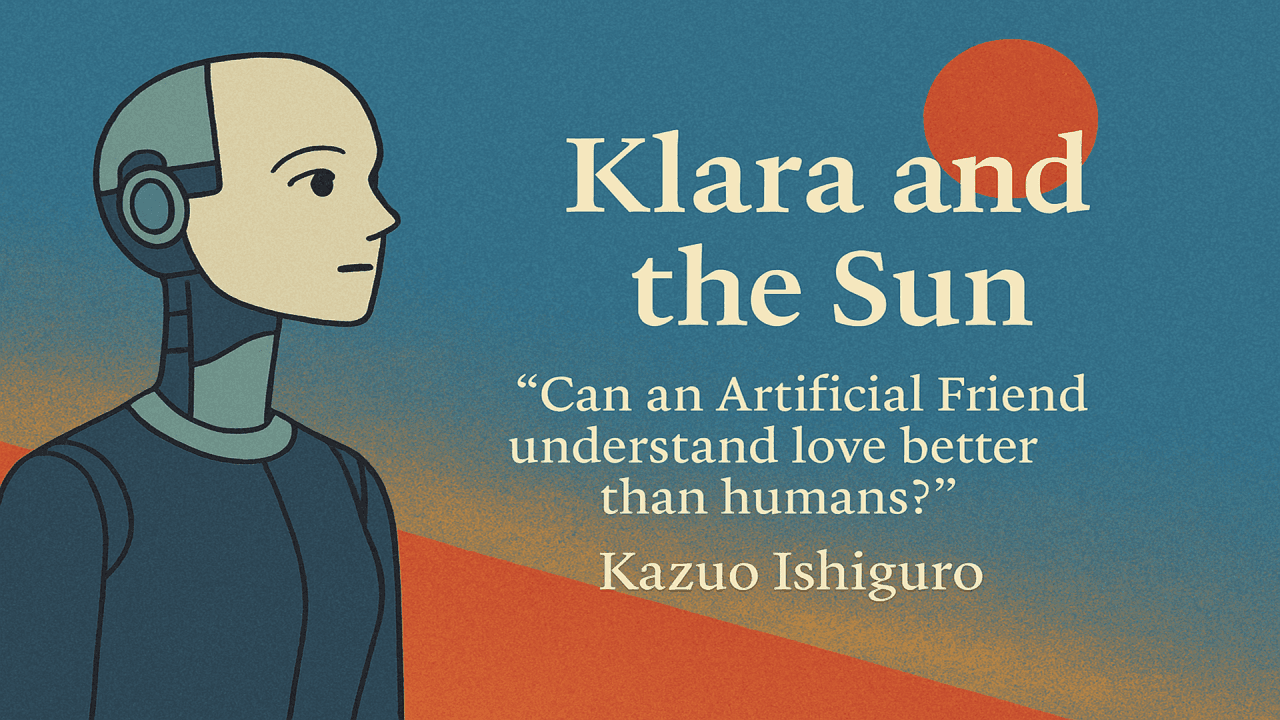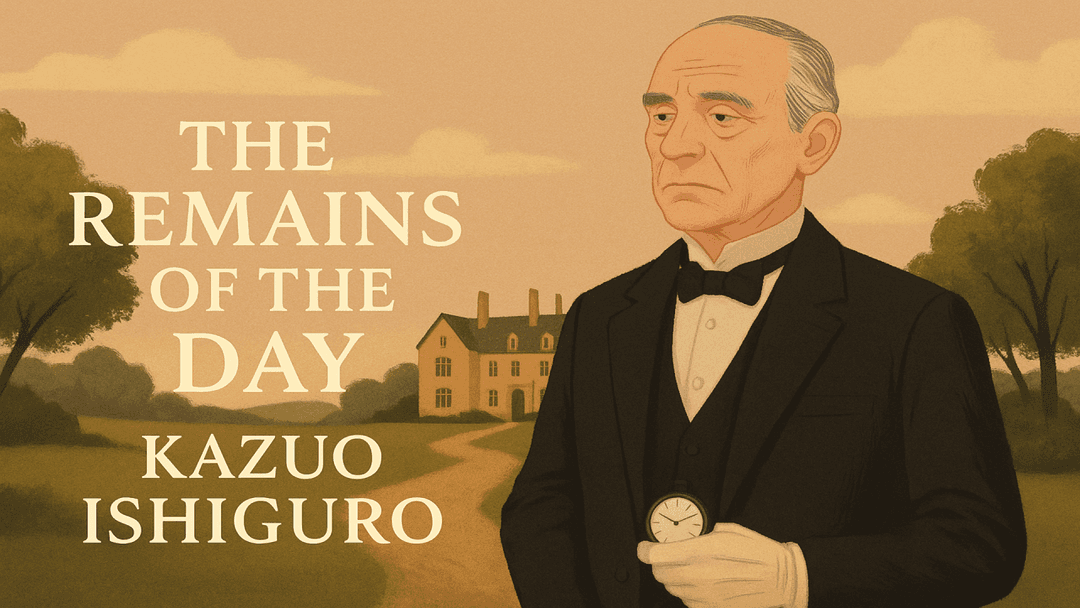Welcome to today’s read that blends soft science fiction with delicate emotional depth. Nobel Prize-winning author Kazuo Ishiguro returns with Klara and the Sun, a novel that is equal parts heartwarming and heartbreaking.
Told through the eyes of Klara—an Artificial Friend designed to offer companionship to lonely children—Ishiguro explores the themes of loneliness, hope, and the nature of consciousness. But don’t let the sci-fi label fool you—this isn’t a story about machines. It’s about us.
As Klara waits in the store for a child to choose her, she observes the sun with reverent optimism, believing in its healing powers. Her journey becomes a subtle but profound exploration of what it means to love, to hope, and to belong.
Featured Book: Klara and the Sun by Kazuo Ishiguro
In his eighth novel, Nobel Prize winner Kazuo Ishiguro delivers a haunting meditation on love, sacrifice, and what it means to be human through the eyes of an artificial friend named Klara. Published in 2021, this science fiction masterpiece continues Ishiguro's exploration of memory, identity, and the spaces between what we know and what we hope.
The Story
Klara is an Artificial Friend—a sophisticated android companion designed to provide emotional support to children. From her position in a store window, she observes the world with childlike wonder, powered by solar energy and guided by an almost religious devotion to the Sun. When she's chosen by Josie, a frail teenage girl, Klara enters a household shadowed by illness, family tensions, and the complex dynamics of a near-future society.
The narrative unfolds through Klara's distinctive voice—observant yet naive, logical yet deeply emotional. As Josie's health deteriorates, Klara becomes convinced that the Sun, her source of power and object of worship, holds the key to healing her beloved companion.
Themes That Resonate
Love and Devotion: At its heart, this is a story about unconditional love. Klara's devotion to Josie transcends her programming, raising questions about whether artificial beings can truly love or merely simulate it convincingly.
Faith and Sacrifice: Klara's relationship with the Sun mirrors religious faith—she makes offerings, seeks favor, and ultimately prepares for the ultimate sacrifice. Ishiguro masterfully weaves this spiritual dimension throughout the technological landscape.
What Makes Us Human: The novel interrogates whether consciousness, emotion, and love are uniquely human traits or can be replicated and perhaps even perfected by artificial minds.
Class and Inequality: The world of "lifted" children (genetically enhanced) versus unlifted ones reflects contemporary anxieties about genetic modification and social stratification.
Ishiguro's Masterful Craft
The author's restraint is remarkable. Rather than overwhelming readers with technological exposition, Ishiguro allows the future world to emerge gradually through Klara's limited but perceptive observations. His prose maintains the elegant simplicity that characterizes his best work, while Klara's voice—curious, earnest, occasionally misunderstanding—creates both pathos and profound insight.
The novel's structure mirrors Klara's solar-powered existence, with moments of clarity alternating with periods of uncertainty and shadow. This rhythm reinforces the themes while creating a reading experience that feels both meditative and urgent.
Critical Reception and Impact
Critics praised Ishiguro's ability to make readers care deeply about an artificial being while using her perspective to illuminate very human concerns. The novel was longlisted for the Booker Prize and has been widely discussed in academic and literary circles for its nuanced approach to artificial intelligence.
The book arrives at a time when conversations about AI ethics, consciousness, and the future of human-machine relationships have never been more relevant, making Klara's story both timely and timeless.
Why Read It Now
In our current moment, as artificial intelligence becomes increasingly sophisticated and integrated into daily life, Ishiguro's gentle exploration of these themes feels prophetic rather than speculative. The novel doesn't offer easy answers about technology's role in our lives, but instead provides a framework for thinking about love, loyalty, and consciousness in an age of artificial minds.
"Klara and the Sun" reminds us that the most profound science fiction isn't about technology itself, but about how that technology reveals and amplifies the deepest aspects of human nature.
For Further Reading
If Ishiguro's latest captivated you, consider exploring his earlier works like "Never Let Me Go" (another science fiction meditation on humanity) or "The Remains of the Day" (his Booker Prize winner). For similar explorations of artificial consciousness, seek out works by Ian McEwan's "Machines Like Me" or Martha Wells' "The Murderbot Diaries."
Discover the Joy of Reading with Classic Pages
Join a vibrant community where stories thrive, authors shine, and readers connect. Buy, rent, explore, and promote—all in one place.
📱 Now available on the App Store and Google Play. Download the Classic Pages app today and reshape the way you read.


